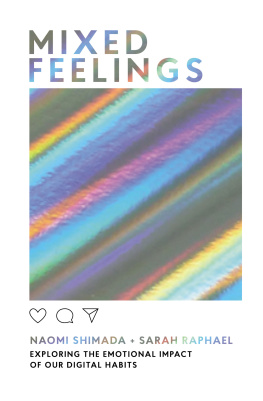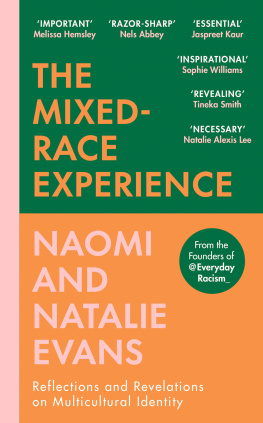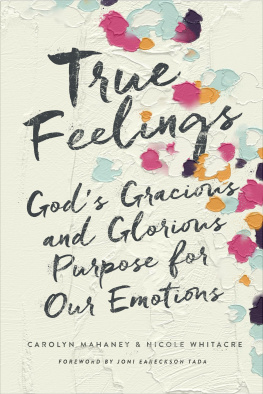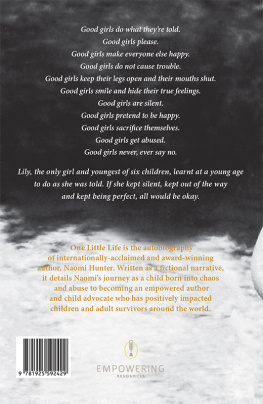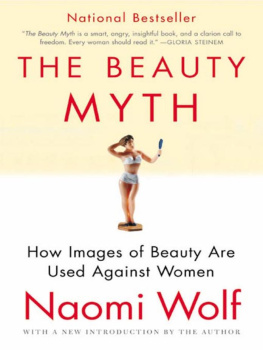H e r e s t o s e e i n g e a c h o t h e r a s w e r e a l l y a r e
Contents
SARAH
The people in my life who talk most enthusiastically about social media are teenage girls and my dad. The girls say that it makes them feel unattractive and unpopular and causes arguments and ruins their sleep, but that its also made their generation far more open-minded because theyre exposed much earlier than my generation were to body diversity and the LGBTQ+ community and beauty bloggers who wear the hijab. Statistically, teenage girls feel the negative effects of social media most directly, but theyre also the group most likely to appreciate a window into the exciting world beyond their classrooms and bedrooms.
At 66, my dad spends over an hour a night in bed catching up on his WhatsApp groups, where he shares political memes, YouTube videos and jokes that make him cry with laughter with some Egyptians he grew up with in Cairo and found on Facebook years after losing touch. He finds it all so wondrous. I wish I could see it the way he does, without all the layers of crap, but as one of the millions of millennials with an anxiety disorder and a job that involves being on the internet all day, Im much too aware of the dark side.
For the last 10 years, Ive worked as an editor and journalist at very fast-paced digital media companies, from Vice to Refinery29. My entire career to date has consisted of sitting at a desk, essentially inside the internet, observing how people behave, what they expect, what makes them feel bad, good, angry, satisfied. My job requires me to be analytical about why people click on posts and where those clicks take them, yet my own behaviour online (as a highly sensitive, jealous Cancerian with Scorpio rising) is frenzied. Ive always existed in the strained place between self-control and impulsive desires. I used to sit in assembly at school with an unnerving level of poise for a 12-year-old thinking about what would happen if I screamed, and then being worried that I would in fact scream, because although it would be really embarrassing to scream in assembly, the idea felt very thrilling to me. I think most people have these kinds of impulses, ones that dont quite match up with the personality they show the world, and the internet is where these impulses find an outlet. Its where people go to watch a girl roll her face in bread or where they kick back with some anim porn after a hard day at the office. When asked what hes learned in his years as a journalist interviewing those on the fringes of society, Louis Theroux brought up these opposing forces within us: We are all much more complicated than we let on, and we go around judging people and stigmatising people but, actually, if we opened up our minds like cabinets, youd see so much weird stuff in there, stuff that would be deeply embarrassing and hard to justify... Were full of these contradictory impulses, some of which are quite dark [Desert Island Discs]. Its that tension between the character traits we project to the outside world and the character traits we feel inside ourselves that I wanted to explore in this book.
A lot of people say that social media is neither good nor bad its just a reflection of whats happening in society. I struggle with this view because I think people behave online in a way that they wouldnt in real life. I think society on social media has a different value system. In the outside world, vanity is a deadly sin, narcissism is a cautionary tale, charity is supposed to be humble, and basic morality means not bragging about your successes, expensive clothes and nice holidays. I know that makes me sound like a nun, but Im speaking from the position of having done the opposite online hundreds of times: Ive only posted photos of myself where I either look the best Ive ever looked or Im doing something that demonstrates my popularity, physical fitness, charitable nature or professional success. Half my Instagram feed is a humble work brag captioned with phrases like So honoured to have taken part in... and So humbled to have been asked to... But what I know from working in the media industry is that most people who appear narcissistic and vain online arent like that when you meet them in real life in fact they often seem insecure; and most people who brag about their work successes online arent pleased with themselves at all theyre too busy worrying about the next thing. The truly pleased-with-themselves arent posting, because they dont need the boost.
Asked why she doesnt use social media, the actor Olivia Colman said: I just find it distasteful. I just dont know why Id have to show everyone what happens every day what Im eating or me with a filter. Theres a level of vanity which is accepted that used to be mocked. If anyone caught you looking in a mirror ... Id have been embarrassed as a teen, whereas now you see youngsters all the time on a bus or anywhere holding their phone up, filming themselves, looking at themselves. Its weird [David Tennant does a Podcast with...]
Its very weird, and whats even weirder is that we dont talk about how weird it is, we just get on with the business of doing it taking photos of ourselves while were looking in a mirror. Social media makes us behave in such strange ways: we give in to impulses online that we would never give in to in real life; we share things with strangers weve never said out loud; we desire the very same things we resent.
My intention for my part of each chapter in this book was to explore an uncomfortable feeling or dark impulse I had while using social media an impulse that most people could relate to in some way. Then, with the help of psychologists, social media experts, teenagers, activists, journalists, drag queens and plastic surgeons, to try to get to the other side of that uncomfortable feeling. I didnt seriously expect anything about the way I used social media, or the way I was as a person, to change in writing this. But by working through the dark feelings the judgements I made about other people online, the way I compared myself to everyone, the digital paranoia I felt in romantic relationships I found the light.
Based on her Instagram account, I thought Naomi only existed in the light side, and I thought that made us the perfect pair for this project: me with my dark impulses at the back end of the internet, and Naomi with her rainbow-bright worldview at the front end. But what I realised is that her light is the result of overcoming various dark experiences. Shes taught me to slow down, calm down and look at a feeling from the outside with compassion before letting it rule me, both on- and offline.
While we knew we could offer a good balance of perspectives between us, our experiences of social media are limited to the specifics of our jobs and own lives, and we wanted to do more than explore our own feelings. So we cast the net wider and asked the women in our networks and outside of them what their uncomfortable feelings were about social media, and how it affected their work, leisure time, relationships and self-image. Each time we read a new contribution, we gained a new perspective. Technology and society change fast, and tomorrow will bring another set of stories, but for a greasy slice of time, this is how it felt to us.
NAOMI
I have earned a living working as a model in the fashion and advertising industries for almost 15 years, but for me the moment that everything changed, as for so many others, was the advent of social media.
My life on the internet felt like it started to escalate when many years ago I started voicing my concerns about the fashion industrys reluctance to use more varied body types in their ads and campaigns. At that moment in time, diversity in fashion was still very much a new conversation. As I look around now, I can see that a lot has changed since then. But these new changes have given birth to fresh challenges.
Next page
